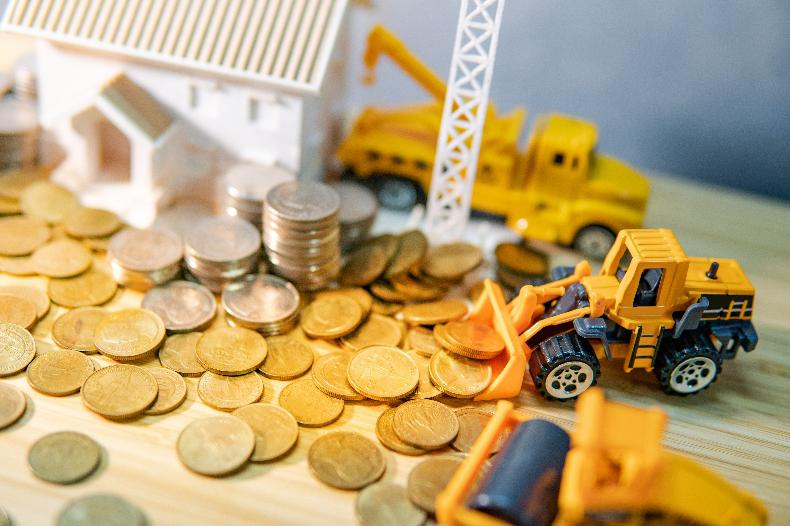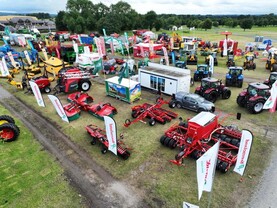Within the farming sector, the question of whether to invest on or off the farm can often be asked It’s a big decision and not to be taken lightly. If the decision is for on-farm investment, the choices may be land purchase, stock purchase, land leasing, farm development, share farming or asset purchasing.
All are long-term investments. If the decision is for off-farm, it could be shares, investment property, pensions, bonds and many more.
Before making either decision you need to be fully aware of your cashflow situation, your farm operation efficiency and your overall wealth. Remember: farmers experience good and bad years. You need to be sure what return on investment you are likely to make or expect to make. Farmers are often considered asset rich but cash poor. Depending on your age and your own personal commitments the answers and choices will all be different.
What is your attitude to risk?How will you fund the investment? What is the underlying reason for your choice of investment? Are you looking for a quick return on your investment? Would you be willing to risk your farm based on a choice that may not come to fruition? What are your current family commitments? Are you concerned about your retirement? Have you any life cover? Are you looking for a return on capital and security or are you retirement planning? Good farm business management
Before making a decision on any investment you need to fully understand the following detail of your farm, at the very least:
How important is cash flow?
What will happen to this if you take out a large amount to fund an off-farm investment? For example using €30,000 from the farm current account to pay a deposit on a residential investment property to rent out or to buy a holiday home.
What are the prospects for your particular type of farming enterprise over the next five years? For example if you are a dairy farmer, the price of milk and the cost of inputs will need to be given some thought.
How efficient is the farm operation currently?
If you invest further will this increase your efficiency? For example if you are a dairy farmer and the land adhering to your land is available for sale, does it make good commercial sense for you to buy it, regardless of price?
The return you expect to get from this investment is a vital consideration as this land may be for sale at a ransom price.
What profits are being generated currently on the farm?
Profit is the difference between the value of the goods produced by the farm and the associated costs for producing them. For example a dairy farmer will know how much they are being paid for a litre of milk, of equal importance they also need to know how much it is costing them to produce it?
Professional advice from your accountant/adviser and solicitor is vital before you decide to make a large investment, either off-farm or on farm.
Depending on the investment, you may need bank funding. If so, your bank will require up-to-date financial accounts and a detailed business plan outlining the proposal. Your accountant or financial advisers will be essential in putting a professional document together to support their decision. This will provide you and your bank with the confidence to invest in your on or off-farm investment.
Dan is a tillage farmer; married with two school-going children. His wife works part time as a nurse. For the past three years, on average, the farm (all income included) has generated a net profit of €40,000. The average net disposable income is €26,000. The family would like to buy a holiday home, costing €125,000. They want it for their own use. It’s a good deal as a friend is selling it and the holiday home is valued at €150,000. They have savings of €25,000, so will need a bank loan of €100,000 to fund it. At an interest rate of 6% (stressed) over 15 years, this would cost €10,300 per annum. Dan would like to know if this would be a good investment.
Based on a net disposable income of €26,000, Dan can afford the annual repayments of €10,300 – but will he be able to continue these repayments over the next 15 years? As the family do not intend to rent out the holiday home this will not be an income generating asset. There will also be utilities to be paid, repairs, maintenance and property tax to be funded from the farm income. As the home is valued at €150,000, with a loan requirement of €100,000, the loan to value is 66%.
Based on the current investment property bank policies, will Dan be able to obtain funding for this investment? Generally bank policy is limited to 70% of the purchase price. In Dan’s case this would mean he could only avail of a loan of €87,500, creating a shortfall of €12,500.
He may be able to fund this from another source. Dan, with his family, will need to decide if this makes good financial sense, or if they are over-stretching.
Perhaps it might be possible to rent out the holiday home and earn rental income to cover annual expenses. If so, Dan will also have to pay tax on this rental income.
Not all investments are prudent, but serious consideration needs to be given to any long term on or off-farm investments.
Read more
Money Mentor: succession – the options
Money mentor: if you are a Ulster Bank farming customer, do not panic
Within the farming sector, the question of whether to invest on or off the farm can often be asked It’s a big decision and not to be taken lightly. If the decision is for on-farm investment, the choices may be land purchase, stock purchase, land leasing, farm development, share farming or asset purchasing.
All are long-term investments. If the decision is for off-farm, it could be shares, investment property, pensions, bonds and many more.
Before making either decision you need to be fully aware of your cashflow situation, your farm operation efficiency and your overall wealth. Remember: farmers experience good and bad years. You need to be sure what return on investment you are likely to make or expect to make. Farmers are often considered asset rich but cash poor. Depending on your age and your own personal commitments the answers and choices will all be different.
What is your attitude to risk?How will you fund the investment? What is the underlying reason for your choice of investment? Are you looking for a quick return on your investment? Would you be willing to risk your farm based on a choice that may not come to fruition? What are your current family commitments? Are you concerned about your retirement? Have you any life cover? Are you looking for a return on capital and security or are you retirement planning? Good farm business management
Before making a decision on any investment you need to fully understand the following detail of your farm, at the very least:
How important is cash flow?
What will happen to this if you take out a large amount to fund an off-farm investment? For example using €30,000 from the farm current account to pay a deposit on a residential investment property to rent out or to buy a holiday home.
What are the prospects for your particular type of farming enterprise over the next five years? For example if you are a dairy farmer, the price of milk and the cost of inputs will need to be given some thought.
How efficient is the farm operation currently?
If you invest further will this increase your efficiency? For example if you are a dairy farmer and the land adhering to your land is available for sale, does it make good commercial sense for you to buy it, regardless of price?
The return you expect to get from this investment is a vital consideration as this land may be for sale at a ransom price.
What profits are being generated currently on the farm?
Profit is the difference between the value of the goods produced by the farm and the associated costs for producing them. For example a dairy farmer will know how much they are being paid for a litre of milk, of equal importance they also need to know how much it is costing them to produce it?
Professional advice from your accountant/adviser and solicitor is vital before you decide to make a large investment, either off-farm or on farm.
Depending on the investment, you may need bank funding. If so, your bank will require up-to-date financial accounts and a detailed business plan outlining the proposal. Your accountant or financial advisers will be essential in putting a professional document together to support their decision. This will provide you and your bank with the confidence to invest in your on or off-farm investment.
Dan is a tillage farmer; married with two school-going children. His wife works part time as a nurse. For the past three years, on average, the farm (all income included) has generated a net profit of €40,000. The average net disposable income is €26,000. The family would like to buy a holiday home, costing €125,000. They want it for their own use. It’s a good deal as a friend is selling it and the holiday home is valued at €150,000. They have savings of €25,000, so will need a bank loan of €100,000 to fund it. At an interest rate of 6% (stressed) over 15 years, this would cost €10,300 per annum. Dan would like to know if this would be a good investment.
Based on a net disposable income of €26,000, Dan can afford the annual repayments of €10,300 – but will he be able to continue these repayments over the next 15 years? As the family do not intend to rent out the holiday home this will not be an income generating asset. There will also be utilities to be paid, repairs, maintenance and property tax to be funded from the farm income. As the home is valued at €150,000, with a loan requirement of €100,000, the loan to value is 66%.
Based on the current investment property bank policies, will Dan be able to obtain funding for this investment? Generally bank policy is limited to 70% of the purchase price. In Dan’s case this would mean he could only avail of a loan of €87,500, creating a shortfall of €12,500.
He may be able to fund this from another source. Dan, with his family, will need to decide if this makes good financial sense, or if they are over-stretching.
Perhaps it might be possible to rent out the holiday home and earn rental income to cover annual expenses. If so, Dan will also have to pay tax on this rental income.
Not all investments are prudent, but serious consideration needs to be given to any long term on or off-farm investments.
Read more
Money Mentor: succession – the options
Money mentor: if you are a Ulster Bank farming customer, do not panic






 This is a subscriber-only article
This is a subscriber-only article










SHARING OPTIONS: